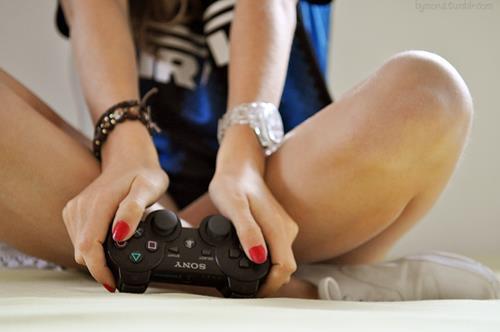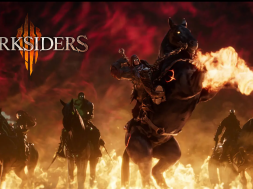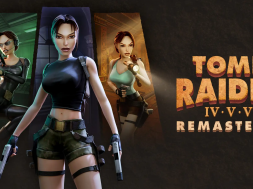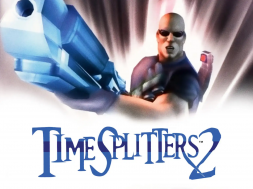

This year, more so than ever before, the topic of gender roles in gaming has been on the tip of everyones tongue. Anyone who closely follows any gaming blogs will no doubt be aware of this and if statistics are any indication, they’ll probably be unjustifiably outraged by it. So vocal have the equality detractors been in their response to things like Anita Sarkeesians Kickstarter campaign, that you’d be forgiven for assuming that they echo the feelings of gamings vox populi.
Here’s the thing though; they don’t.
A fellow writer on this website recently posted his own piece on this gender issue, a well written piece that has come under quite a lot of criticism from various gender equality groups. I, for one, am happy to believe that the authors intentions were good and that the overall statement of his piece has some merit. Unfortunately, I also think he made a few seriously clanging errors. The channels are open now for debate, and I feel it’s time I weighed in.
“When you ask the question “Is gaming a man’s world?” the first and easiest answer that comes to mind is “Yes.” And with good reason: the overriding image of gamers today is of sullen, headset-sporting misogynists pretending to be non-descript armoured warriors, screaming abuse at other non-descript armoured warriors while they mainline Pepsi and sweat Red Bull into their controllers”
For the sake of clarity, I’m going to respond to specific points individually. Firstly let’s address this statement. I don’t know who the author thought he was asking here, but to my mind, and the minds of many others I’ve spoken to, the most obvious answer to that question is a resounding no. Maybe the ‘overriding image of gamers today…’ as ‘sullen, headset-sporting misogynists…’ only persists because people continue to perpetuate it. I’ve been a gamer as far back as I can remember. I’m an active participant in this generation of console gaming and I quite simply refuse to accept this image as that of a typical gamer in 2012. Over the last decade or so I’ve watched as my beloved medium was embraced by millions of former naysayers. I’ve watched as the image, any image, of a ‘typical gamer’ was worn away by the sheer volume and variety of the people playing. We live in a time where someone can walk into a game store and pick up Devil May Cry or Your Shape: Fitness Evolved much in the same way someone could walk into HMV and have the freedom to choose anything between and beyond a simple action flick or exercise video. There is no typical gamer anymore than there are typical games and even attempts to ridicule the negative stereotypes reinforce them simply by acknowledging them. These ‘sullen misogynists’ don’t deserve attention in any shape or form and they certainly don’t deserve to be seen as the ‘typical gamer’.

“For me, gaming became a man’s world about the time of the release of the PS One; With the exception of maybe Tomb Raider and Resident Evil, the system was rife with muscular manly men doing the hero thing with guns, bombs, lasers, fists and giant swords. Whether it was the Nameless Marine in the Doom port blowing the crap out of monsters on Mars, Jin Kazama flinging feet in the Tekken series, or the rather obvious exploits of Spider-Man, Bomberman and the various other “men” of the world of gaming, there was no doubt in my mind that the 3D revolution was doing its part to set the Women’s Liberation Movement – or at least the Women’s Gaming Movement – back more than a few steps.”
I think this is the point where some clarification would have been helpful. I can’t speak for everyone, but when I hear discussions as to whether or not a specific industry is dominated by one gender over the other, I assume we’re discussing the genders and motives of the creators, not personal interpretations of the content that’s created. I’ve always been under the impression that the PSX was the point at which women started playing more than ever. Admittedly this is mainly due to the fact that the PSX got more PEOPLE playing than anything before it, so I’d think it’s safe to assume there were more ladies playing because there were simply more people playing. But this is where the main error in the authors judgement begins to rear its head…
“Nowadays, you don’t have to look far to see that gaming is extremely guy-orientated. Pretty much any trailer for recent games revolves around men doing stereotypically male things like going to war, playing football or bashing and bombing entire countries to dust in one form or another. Unless you want to flail your body around in the horrible-looking seizure patterns that games developers seem to think constitutes “dancing”, it seems there’s not much out there for lady gamers to get into.”
Why are dancing games inherently feminine? Surely the author can’t possibly mean to say that women can’t enjoy games about war, playing football or bashing and bombing entire countries?

“There’s plenty of reason why this is the case, and why, by and, large, men are still the majority when it comes to gaming. There isn’t exactly a lot of impetus for women to get into gaming when their character options generally fall into the categories of taking on the guise of an exaggerated sex object – hello, Lara Croft, Bayonetta and half the cast of the Dead Or Alive series – or slipping into the skin of the likes of Duke Nukem, a male pig so chauvinist, the only way the enemy could be made worse was to make them actual pigs. About the only female character who escaped these pigeon-holes was Samus from Metroid, and the makers had to hide her from players for the entirety of the game to do it (Sorry if that’s ruined the first Metroid for you, but if it has, where the hell have you been for the last twenty-odd years?).”
Now, to be fair to the author, he isn’t the first person to try and make this argument and he probably won’t be the last. This notion that developers must make conscious efforts to include absolutely everybody and all walks of life for the sake of some glorious technicolour dreamcoat society is quite frankly, absurd. People are perfectly capable of relating to motives and characters whether or not they see elements of themselves within them. For instance, I am not Nathan Drake. Nor am I Juliet Starling. At no point in my time with either did I feel any desire for them to be an overweight Irish boy on his couch, probably with a Terrys Chocolate Orange and a Pepsi Max. To assume that women could only ‘get into’ a game if they’re playing as a woman is completely nonsensical. My girlfriend is more taken with the Resident Evil series than I’ve ever been, I religiously watch (and re-watch) My Little Pony: Friendship is magic, a show with practically zero male characters. What about the fact that the majority of Harry Potters fans are girls? Any attempt to suggest that anyone can only enjoy their experience in any given medium in the company of someone just like themselves is unreasonable, at best.
“The point I’m trying to make is that gaming has the potential to be anyone’s world. It’s all about escapism, about how much you can suspend your disbelief and get into the world the game creates. Gender almost ceases to matter if the right game comes along. And if you love gaming enough, it won’t even matter which gender a game is designed for, something I’m reminded of every time I feel the urge to walk past the racks of Call Of Duty and Doom3 and pick up that used copy of Pippa Funnell: Take The Reins just to see what it’s like.”
While this is a point I can wholeheartedly support, it’s impossible to ignore the fact that the author is contradicting himself. Maybe the previous statements were merely set-ups for this counter argument, but by this point certain things have definitively been said; war games are for men, dancing games are for women and women only like to play as other women. Some more tactile phrasing earlier in the article, instead of the use of this paragraph as some sort of trump card, may have prevented the knee-jerk reactions of some individuals.
And yet knee-jerk reactions seem to be a persistent problem in the gender debate. As far as I can tell this is because things are being talked about as gender issues when in fact they are nothing of the sort. Whether or not a person relates to another person is not a gender issue. Whether or not a person gets enjoyment out of any given game or TV show is not a gender issue. And yet, here we are, discussing them as such.
A perfect example of this is Anita Sarkeesians upcoming video series Tropes vs Women in Video Games, in which she proposes to explore the archetypes for female characters developers tend to lazily fall back on. It’s an attempt to show the games industry where it’s going wrong, where it can improve and is something that deserves respect and civility if nothing else. However, there have been no shortage of vile, spiteful and immature responses to Ms. Sarkessians efforts and because of this some genuine concerns and questions are getting completely lost in the crossfire.

For instance, in an interview with Gamespot Ms. Sarkeesian singles out Chell from Portal and Faith from Mirrors Edge as examples of how female characters should be treated in games. This raises an eyebrow with me for two reasons. Firstly, as much as I love both games, neither Chell nor Faith are examples of good characters, regardless of their gender. Chell is a cipher, not once across two games does she speak or offer any kind of insight into who she is as a person. As for Faith, plot was thin on the ground in Mirrors Edge and she’s probably the most one-dimensional video game character since Strider Hiryu. Sure these are examples of strong women, but strength is just one attribute and does not a good character make.
One of the reasons Sarkeesian highlighted both Chell and Faith was the fact that neither are sexualized in their game, as opposed to say, Juliet Starling in Lollipop Chainsaw. So is sexualization the true enemy? I don’t believe so. Sex is as much a part of human identity as anything else and has played a vital role in the iconography of every medium there is, why should games be any different? It’s important to remember that sexualization, the acknowledgement of a characters sexuality and its use in a given narrative, is very different from objectification, the reduction of an individual to certain attributes. Just because a character is sexualized does not mean they are being objectified. Equally, just because a character is not sexualized does not mean they are a good character.
Unfortunately, these discussions are increasingly difficult to have when both sides seem to take immediate and unpredictable offense to the smallest of things. Gender inequality is a massively important issue and applying it in name to discussions where it doesn’t apply is enormously disrespectful. When it comes down to it, we are all, despite some pretty glaring anatomical differences, just people. And people don’t let what’s between their legs determine whether or not they like candy coloured ponies or gun toting mercenaries.
Do what you want and love what you do.










